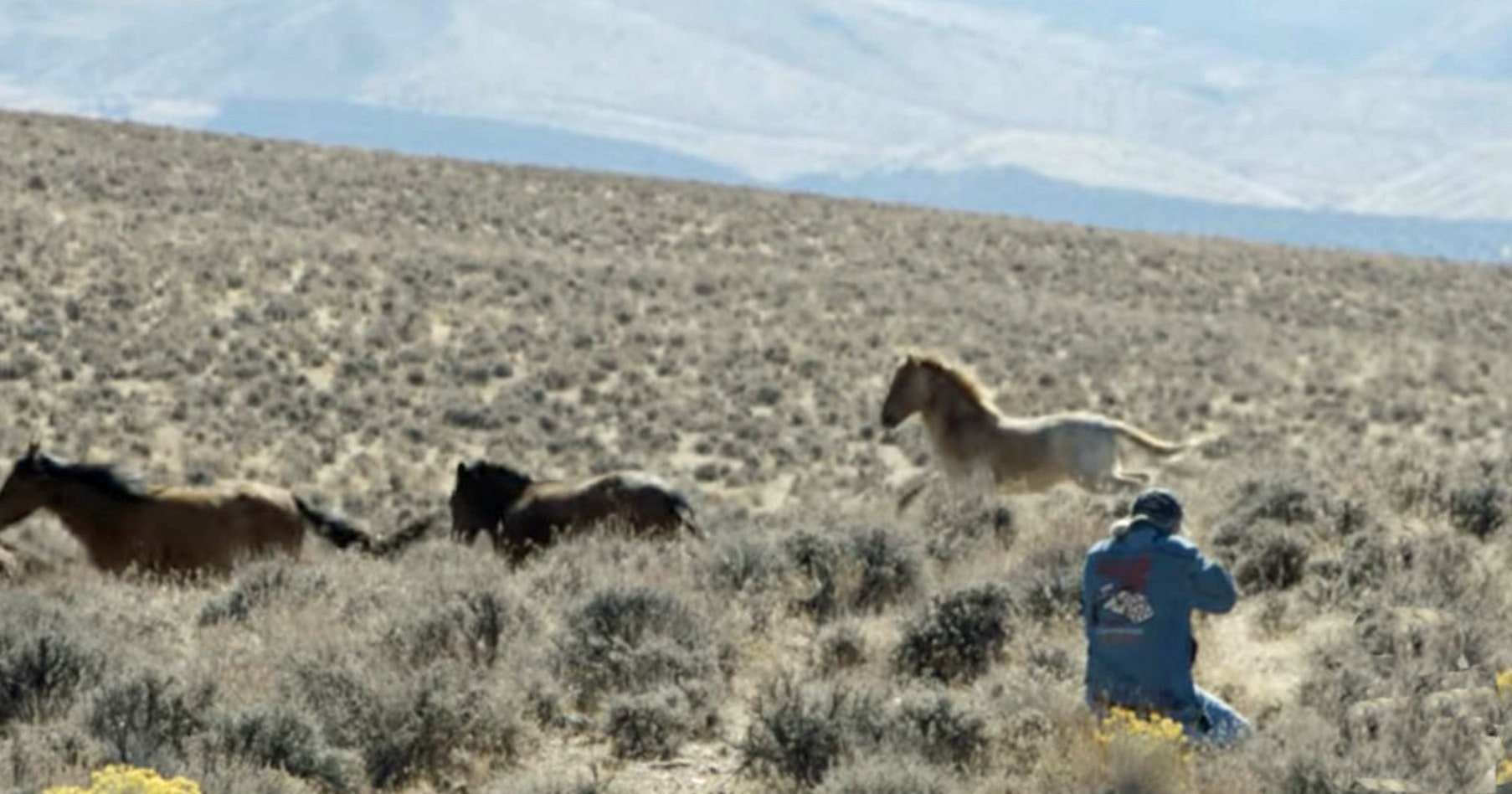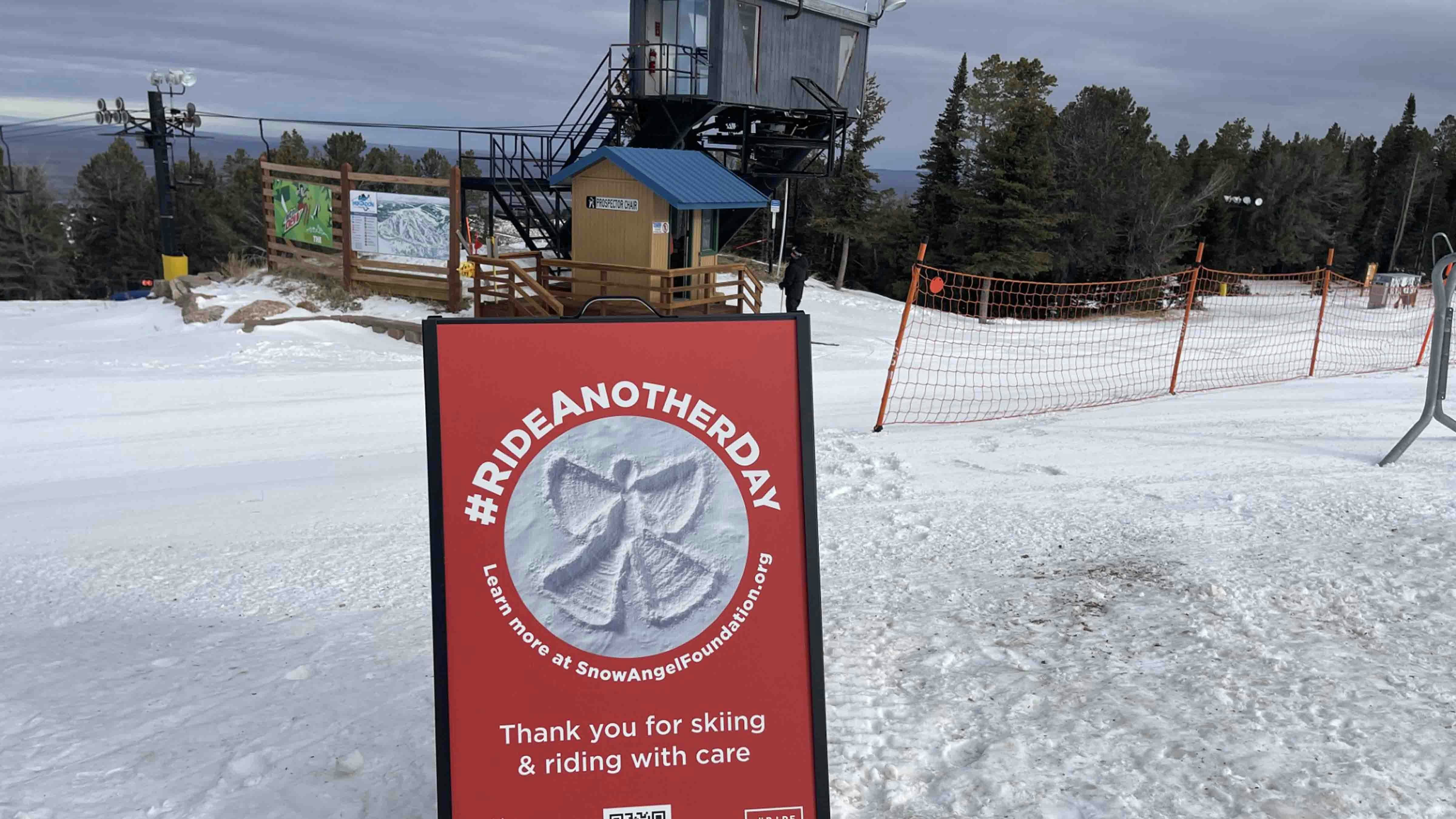Putting combat veterans on the ground out West, including in Wyoming, to stalk mustang mares with rifles that shoot birth control darts could give those veterans healing purpose, while also solving the conundrum of how to manage mustang herds, a veteran’s advocate said.
“Veterans, especially combat veterans, have the skills to navigate in rugged terrain and use stealth. Plus, those dart guns are remarkably similar to an M-16,” Army National Guard veteran Cameron Ring told Cowboy State Daily.
Ring, who served as a Military Policeman, lives in southwest Virginia and is the founder of Veterans For Mustangs. The group has affiliation in Colorado, and hopes to establish a presence in Wyoming, he said.
Meanwhile, proposed bills set to go before both the Wyoming Legislature and Congress could alter the management of the West’s mustang herds, which include roughly 4,000 animals in Wyoming.
Specific to the Cowboy State, HB 0005 calls for compensation for mustangs’ grazing whenever they stray from federal lands. It would also give greater say in wild horse management to the state, as well as the Shoshone and Arapaho tribes on the Wind River Indian Reservation, according to information posted on the Legislature’s website.
Equine Controversy
Wild – or some would argue, feral – horses have long been the subject of controversy in Wyoming and the West. The horse species that was native to North America is thought to have died out roughly 12,000 years ago. Starting in about the late 1400s, horses that escaped from or were abandoned by European explorers, the U.S. Calvary and others began populating various areas in the West.
The herds are protected under the Wild Horse and Burro Act of 1971, which put the Bureau of Land Management (BLM) in charge of them. The BLM will occasionally round up mustangs and either put them up for adoption or keep them in holding pastures.
Proponents of free-ranging mustangs claim they symbolize the freedom of wide-open lands, and can be an ecologically sound species, so long as their numbers are reasonably controlled through humane methods.
Others want harsher control, claiming the mustangs are essentially an invasive feral species that damage the landscape, disrupt ranching and hurt native species, such as mule deer.
Darting Mares To Give Veterans Purpose?
Ring said his group could give vital healing purpose to veterans while implementing mustang control that could help ease the longstanding dispute over the horses.
He also likes the idea of more state authority over mustang management.
“The federal government sort of has a one-size-fits-all approach, and the states would be better at managing it,” he said.
That mirrors the experience of veterans wrestling with post-traumatic stress disorder (PTSD), depression and other mental health challenges, Ring said.
“The V.A. (Department of Veterans Affairs) sort of has a one-size-fits all approach to PTSD – ‘Here’s your happy pills. Now, go be happy,’” he said.
It’s interesting that many older warrior cultures, such as the Apache Indians or Spartans, didn’t seem to have a problem with PTSD, he said. Those cultures involved the entire community in “absorbing the warriors’ pain” and giving veterans a purpose, he said.
“In the modern Western culture, the warrior bears the burden of war alone,” he said. “The number one cause of depression in veterans is lack of purpose, and no pill can fix that.”
So, letting veterans tap into their battle skills by sneaking up on mustang mares with birth control dart rifles would give them healing purpose, as well as helping to keep the mustang populations are reasonable levels, he said.
An Act Of Congress
At least one Congresswoman agrees.
Rep. Lisa McLain, R-Michigan is onboard with Veterans for Mustangs, Ring said.
In April, she sponsored H.R. 7631, which would authorize and “prioritize” veterans dispensing high-velocity equine birth control on BLM lands, according to information posted on the Congress.gov website. Veterans would be paid to do that.
“(The Department of) Interior shall provide appropriate compensation to military veterans participating in such a certification program,” said the bill’s summary.
Ring said he hopes Wyoming’s Congressional delegation will support the bill.
The Healing Power Of Nature, Animals
Ring said he’s witnessed one BLM mare-darting venture in Nevada. While there, he recognized the uplifting power of the West’s vast, wild lands.
“There’s this unique Wild West that you don’t get anywhere else but in America,” he said. “It’s a big part of what these veterans fought to protect.”
“Being out in nature is undervalued,” he added. “There is a healing property to it that you can’t get from drugs.”
Being in close proximity to horses would also help veterans find serenity, he said.
Ring adopted a previously abused Tennessee walking horse, “Awesome Gal”, which he credits for his own healing. And many veterans he knows have had similar experiences by adopting abused horses or mustangs.
The idea for Veterans For Mustangs hatched from veterans’ mutual positive experiences with horses, he said.
Wyoming’s Bill
Wyoming’s proposed legislation claims that there has been “failure” on the part of the federal government, including the BLM and Forest Service, to adequately control mustang’s numbers, according to the bill’s text. It was sponsored and passed in March in by the Joint Agriculture and State and Public Lands & Water Resources Committee. It should come before the Legislature during its next session, scheduled to begin in January 2023.
When wild horses stray off federal lands, the government should pay compensation for horses’ grazing on state, tribal, county or municipal land, according to the bill. Moreover, the state and tribal authorities should have direct involvement in wild horse management, which could include fertility control.
Ring said he hopes his group’s idea, along with the proposed legislation, can strike a balance between what’s best for the land, the mustangs and veterans.
“I think, and I’ve had other veterans tell me, ‘I would have been one of the 22 if it hadn’t been for horses,’” he said, in reference to the estimated 22 veterans who commit suicide each day in America.





